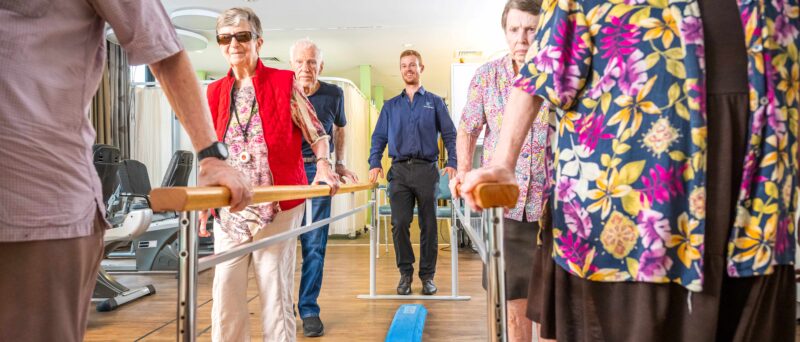Falls prevention is crucial for maintaining health and well-being, especially as we age. Falls can lead to serious injuries, loss of independence, and reduced quality of life. However, many falls are preventable with proactive measures and awareness. Research shows that targeted strength and balance programs can reduce fall rates and boost confidence among older adults in residential care or care communities.
The Impact of Falls
Falls are a significant concern for older adults and can be caused by various factors, including balance changes, muscle weakness, vision issues, medication side effects, and environmental hazards. Each year, millions of older adults suffer falls, resulting in injuries like fractures, head trauma, and sprains.
Key Strategies for Falls Prevention
1. Stay Active: Engage in regular physical activities like walking, tai chi, or water aerobics to enhance strength, balance, and flexibility.
2. Review Medications: Consult your doctor to review medications for potential side effects that may increase fall risk. Adjustments in dosage can help mitigate these risks.
3. Regular Vision Checks: Schedule regular eye exams to maintain good vision and update prescriptions for improved visibility.
4. Home Safety Modifications: Conduct a home safety assessment to address hazards such as loose rugs, poor lighting, and clutter. Install grab bars in bathrooms and secure handrails on stairs.
5. Wear Proper Footwear: Use supportive, non-slip footwear to reduce slipping risks. Avoid walking in socks or loose slippers.
6. Use Assistive Devices: Consider using canes, walkers, or mobility aids for improved stability and balance while walking.
7. Stay Hydrated: Drink plenty of water throughout the day to maintain hydration levels, which can affect balance and coordination.
8. Maintain Muscle Strength: Include strength training exercises in your routine to strengthen muscles and enhance overall stability.
Falls Prevention in Daily Life
- Mindful Movement: Be cautious when transitioning from sitting to standing or walking on uneven surfaces.
- Proper Lighting: Ensure well-lit living spaces to minimize tripping risks, especially at night.
- Fall Awareness: Pay attention to surroundings and potential fall hazards. Take preventive measures to avoid accidents.
Falls prevention is a proactive approach to maintaining safety and independence as we age. By implementing these strategies and making simple adjustments to daily routines and environments, individuals can significantly reduce fall risks and enhance overall well-being. Prioritise safety and take steps to promote a healthy, active lifestyle for a fulfilling life at any age.
Concentric offers a dedicated falls prevention program through their range of exercise based rehabilitation and preventative programs within select aged care facilities. Our services are tailored to each individual resident to achieve outcomes such as increased social participation, increased strength, mobility and balance, and most importantly, proven to decrease functional decline. We perform initial assessments, functional reviews, care plan reviews and deliver short term booster programs within the home. They can also deliver individualised or group Wellness Package sessions, create home exercise programs and complete quarterly re-assessments. We also offer homecare assistance.
To find out how Concentric can support you or your loved one, email support@concentric.com.au or phone 1300 148 160.


